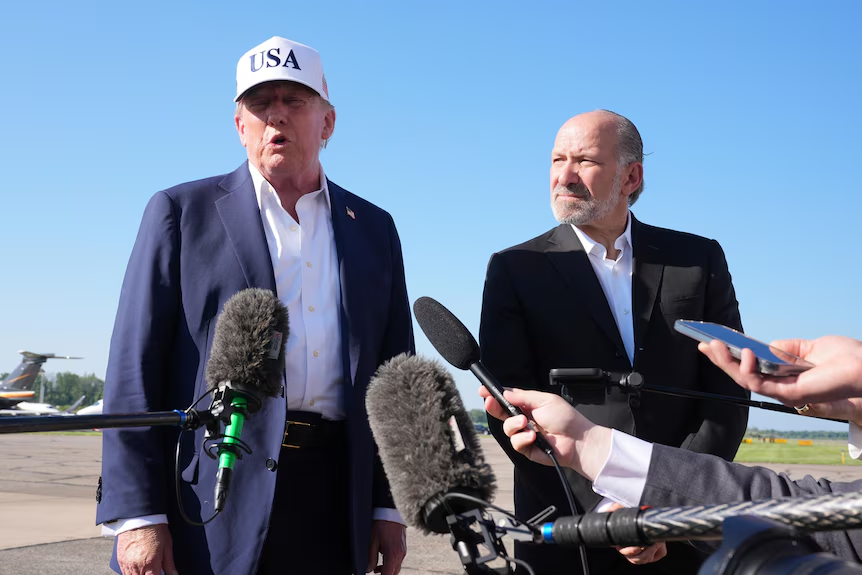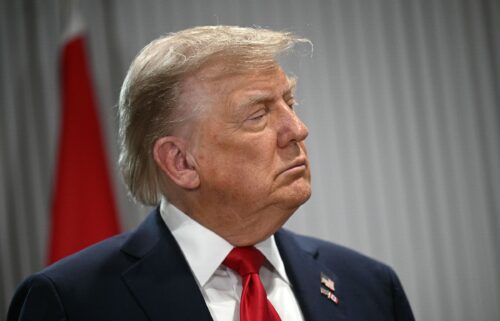In a bold move that has ignited political discourse across the nation, Elon Musk — the billionaire entrepreneur behind Tesla and SpaceX — has teased the creation of a new political movement dubbed the “America Party.” The announcement, though still vague on details, has already stirred waves within both major political parties. One of the most vocal critics has been former President Donald Trump, who wasted no time dismissing Musk’s idea as “ridiculous” and “a waste of time.”
Trump’s response has reignited the tension between the two high-profile figures, whose past interactions have ranged from civil to confrontational. For Trump, who is seeking to consolidate conservative support ahead of the 2024 presidential election, the formation of any splinter group — particularly one led by a powerful, culturally influential billionaire — represents a threat to the loyalty and cohesion of his voter base.
The ‘America Party’ Proposal
Musk’s idea for the America Party appears to be rooted in dissatisfaction with both Democrats and Republicans. While he has not provided a full platform or named potential candidates, Musk suggested the party would be centered around innovation, free speech, individual liberty, and pragmatic governance. On his social media platform, X (formerly Twitter), Musk hinted at the need for a “new voice” that reflects modern values without the ideological baggage of the traditional political spectrum.
He posted, “Both parties have failed to deliver. America needs a party that represents the future, not the past.” While some interpreted the message as a symbolic call for reform, others took it as a concrete step toward building an alternative to the entrenched two-party system.
Musk’s increasing involvement in political discourse has been notable in recent years. Once perceived as apolitical or even left-leaning due to his support for environmental causes, Musk has gradually shifted toward libertarian and conservative viewpoints, especially as it relates to corporate regulation, media censorship, and government overreach.
Trump’s Sharp Rebuttal
Trump, never one to let public challenges go unanswered, quickly rebuffed Musk’s proposal. Speaking during a rally in Pennsylvania, Trump said, “Elon is a smart guy, but this is ridiculous. We don’t need another party to divide the vote. We need unity to save America.” He added, “If he thinks he’s going to build a party from tweets and rockets, he’s in for a rude awakening.”
The former president framed Musk’s idea as naïve and even dangerous. Trump’s camp has expressed concern that a third-party effort could siphon votes away from Republicans, particularly among younger, tech-savvy libertarians and moderates who are disillusioned with establishment politics.
“Everyone wants to be a disruptor,” Trump said mockingly. “But this isn’t a tech startup. This is the presidency of the United States.”
Trump also pointed out that third-party attempts have historically failed to gain traction in America’s winner-takes-all electoral system. From Ross Perot in the 1990s to more recent efforts by the Green and Libertarian parties, history shows that independent movements often struggle to compete at the national level.
A Potential Rift on the Right
The clash between Musk and Trump represents a larger ideological divide among conservatives. While Trump embodies populist nationalism and political combativeness, Musk’s emerging vision for the America Party appears rooted in technocratic ideals, deregulation, and a vision of the future driven by innovation and science. In many ways, they are political opposites, despite sharing some overlapping concerns about government bloat, media narratives, and Big Tech censorship.
Several conservative pundits have expressed cautious interest in Musk’s idea, arguing that a new party could challenge the political establishment. Others, however, fear it could divide the conservative vote in a way that helps Democrats in upcoming elections.
If Musk moves forward, he could attract independents, disaffected Democrats, and centrists who feel alienated by polarized politics. His star power, financial resources, and control over a major social media platform would make him a formidable figure, especially in shaping the national conversation.
However, the road to establishing a new party is riddled with legal, logistical, and cultural obstacles. Ballot access laws vary by state and are often structured to favor the existing two-party system. Organizing a national convention, building a grassroots infrastructure, and finding viable candidates would take years of effort and hundreds of millions of dollars.
Strategic Calculations
Trump’s decision to aggressively denounce Musk’s plan may also reflect a strategic calculus. As he battles legal challenges and prepares for a rematch with President Biden, Trump is focused on shoring up his base and avoiding any fragmentation of his support. By painting Musk’s proposal as a distraction, Trump seeks to maintain the narrative that he alone represents the conservative resistance to Democratic leadership.
For Musk, the pushback may not come as a surprise. He has long portrayed himself as an outsider willing to challenge authority and conventional thinking. Whether he is serious about founding a political party or merely testing the waters remains unclear. But his move has already impacted the political landscape by prompting discussion about the viability of third-party alternatives.
The Road Ahead
As the 2024 election approaches, the idea of the America Party — however embryonic — may gain attention among voters looking for something different. But without a clear platform, leadership structure, or public roadmap, it remains to be seen whether Musk’s proposal is a fleeting thought or the start of a major political project.
Meanwhile, Trump’s dismissal of the idea as “ridiculous” underscores his intent to dominate the conservative movement without competition. For now, the battle lines are being drawn not just between left and right, but between competing visions of what the future of American politics should look like — one led by populist firebrands like Trump, and another possibly championed by tech moguls like Musk who believe in disruption as a path to reform.



